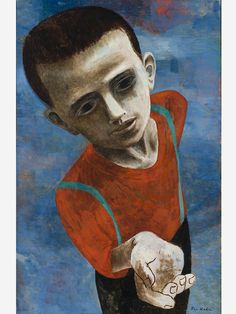Let All Who are Hungry, Come and Eat

Leader lifts matzah plate and all recite in unison:
This is the bread of affliction, which our ancestors ate in the land of Mitzrayim.
Let all who are hungry come and eat.
Let all who are in need, come and share the Pesach meal.
This year, we are here.
Next year, in the land of Israel.
This year, we are slaves.
Next year, we will be free.
Participant:
We eat unleavened bread at Pesach to remind us of the dough our ancestors brought out from Egypt. In their rush to leave, they did not have the chance to let it rise. Matzah is then the bread of liberation. It is a mark of an exodus whose rapid pace overtook them unprepared. The Egyptians, who enslaved them, suddenly expelled them after God brought the plague on the first born. Yet, “ha lachma,” the first official explanation for matzah in the Haggadah, calls it the “bread of affliction” based on Deuteronomy 16:3, “You shall eat unleavened bread, bread of “oni” (distress) – for you departed from the land of Egypt hurriedly.” Here matzah is a memorial not of liberation, but of slavery. The life of oppression is marked by a pressured, “hurried” pace, for the slaves do not control the rhythm of their existence.
Participant:
The gesture of raising the matzah of poverty and persecution is an allusion to G-d’s lifting up the poor. Before commencing any meal, Rav Huna of Babylonia used to open the door and announce: “Let all who are in need come and eat.” Concern for the needy is characteristic of every Jewish celebration. The Torah emphasizes: “You shall rejoice in your festival – with your son and daughter, your male and female servant, the Levi, the stranger, the orphan and the widow in your communities.”
Maimonides expands and explains this principle: “When a person eats and drinks at the festive meal he is obligated to provide food for the stranger, the orphan, and the widow, along with the rest of the poor and despondent. But whoever locks the doors of the courtyard, and eats and drinks with his wife and children, and does not provide food and drink for poor or suffering people, this is not a “mitzvah celebration” but a “celebration of the belly” and this kind of celebration is a disgrace.”
We continue this Biblical tradition of hospitality today by collecting money to fund preparations for the holiday by the indigent, and by inviting guests to the Seder table. Communities should provide networks of hospitality so that no Jew, whether a newcomer or an elderly person, need spend the holiday alone and forsaken.
Participant:
“This year we are slaves.” What can these words mean?
We are slaves because yesterday our people were in slavery and memory makes yesterday real for us.
We are slaves because today there are still people in chains around the world and no one can be truly free while others are in chains.
We are slaves because freedom means more than broken chains. Where there is poverty and hunger and homelessness, there is no freedom; where there is prejudice and bigotry and discrimination, there is no freedom; where there is violence and torture and war, there is no freedom.
And where each of us is less than he or she might be, we are not free, not yet.
And who, this year, can be deaf to the continuing oppression of the downtrodden, who can be blind to the burdens and the rigors that are now to be added to the most vulnerable in our midst?
If these things be so, who among us can say that he or she is free?
Inspired to create
your own Haggadah?
Make your own Haggadah and share with other Seder lovers around the world
Have an idea
for a clip?
People like you bring their creativity to Haggadot.com when they share their ideas in a clip
Support Us
with your donation
Help us build moments of meaning and connection through
home-based Jewish rituals.
OUR TOP CONTRIBUTORS
Passover Guide
Hosting your first Passover Seder? Not sure what food to serve? Curious to
know more about the holiday? Explore our Passover 101 Guide for answers
to all of your questions.






















